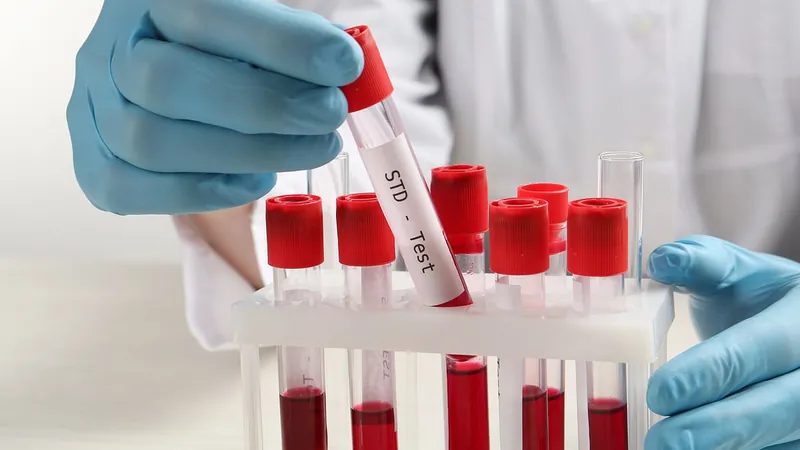
Astounding Surge in Syphilis: Wisconsin's 1,500% Spike Amid Major CDC Lab Closures!
2025-04-17
Author: Jia
Wisconsin is facing a staggering 1,450% increase in congenital syphilis cases since 2019, raising alarm bells across the state.
Just weeks ago, the closure of the nation’s premier STD testing lab, implemented as part of sweeping budget cuts under President Trump, has compounded the issue.
Congenital syphilis, which occurs when an infant is born with syphilis contracted in utero, can lead to dire health consequences, including stillbirths, premature births, and severe birth defects such as deafness and cataracts.
In 2024 alone, Wisconsin recorded 31 cases of congenital syphilis, a sharp rise from just two reported cases in 2019.
The state is grappling with widespread sexually transmitted infections: in 2024, there were more than 31,576 reported cases of STIs, encompassing syphilis, gonorrhea, and chlamydia, with over half of these infections affecting individuals aged 15 to 24.
State health officer Paula Tran acknowledged the troubling trend, highlighting that while some STI levels may be decreasing, the surge in congenital syphilis is particularly concerning. Tran emphasized the need for accessible sexual health education and quality health services to foster timely testing and treatment.
The dramatic rise in congenital syphilis cases coincides with the closing of critical national labs that specialized in testing for rare hepatitis strains and antibiotic-resistant STDs.
For nearly four decades, the STD prevention lab was at the forefront of tracking outbreaks, including a concerning antibiotic-resistant gonorrhea outbreak in Massachusetts earlier this year.
The Association of Public Health Laboratories (APHL) revealed that the lab was instrumental in setting international standards for testing viral hepatitis and STIs across the U.S.
Without the lab, vital testing for ongoing viral hepatitis outbreaks, such as one currently in Florida, has been disrupted. CEO Scott Becker also lamented that samples in transit were left stranded when the lab was abruptly shuttered.
The APHL has urged the U.S. Department of Health and Human Services to restore these essential facilities, echoing sentiments from the American Sexually Transmitted Diseases Association (ASTDA) about the detrimental impact of these cuts.
ASTDA firmly stated that the sudden closure of these labs, devoid of a clear contingency plan, poses a significant threat to public health, especially as the congenital syphilis epidemic continues to escalate.
Advocates are calling for increased investment in STI research and prevention and are urging citizens to contact their legislators to push for the revival of crucial CDC services. The gap left by these closures may have long-lasting consequences for American communities.
As the CDC grapples with a $9.2 billion core budget and significant staffing cuts that have left it under-resourced in tackling public health threats, the future of STD prevention and response hangs in a precarious balance. Without immediate action, Wisconsin and the broader U.S. may face an even graver public health crisis.



 Brasil (PT)
Brasil (PT)
 Canada (EN)
Canada (EN)
 Chile (ES)
Chile (ES)
 Česko (CS)
Česko (CS)
 대한민국 (KO)
대한민국 (KO)
 España (ES)
España (ES)
 France (FR)
France (FR)
 Hong Kong (EN)
Hong Kong (EN)
 Italia (IT)
Italia (IT)
 日本 (JA)
日本 (JA)
 Magyarország (HU)
Magyarország (HU)
 Norge (NO)
Norge (NO)
 Polska (PL)
Polska (PL)
 Schweiz (DE)
Schweiz (DE)
 Singapore (EN)
Singapore (EN)
 Sverige (SV)
Sverige (SV)
 Suomi (FI)
Suomi (FI)
 Türkiye (TR)
Türkiye (TR)
 الإمارات العربية المتحدة (AR)
الإمارات العربية المتحدة (AR)